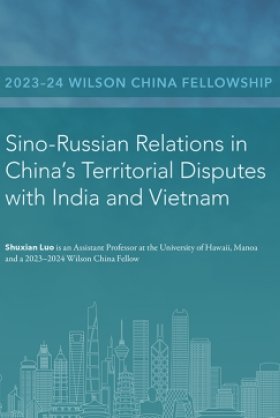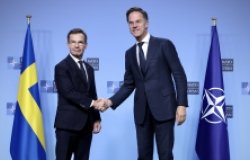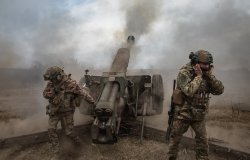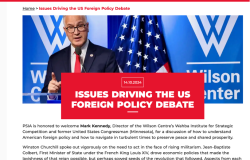Andrea Quintero Olivas via Shutterstock
Roundtable Discussion on the National Guard: The Militarization of Mexican Security
On September 19th at 11 am ET, the Mexico Institute hosted a roundtable discussion with law and security experts to shed light on the substantive effects and possible repercussions of a constitutional reform to transfer the leadership and administration of Mexico's National Guard to the Armed Forces.
Overview
During his electoral campaign, President Andrés Manuel López Obrador promised to return the Armed Forces to their barracks and to replace the Federal Police with a National Guard.
In 2019, Mexico’s Congress approved the National Guard Law, creating a new organism under the Ministry of Security and Civilian Protection’s (SSPC) civil command. While the government believed that the majority of Federal Police troops would join the National Guard (GN), only about half did so. In fact, former Federal Police members comprise less than a fourth of the GN; the majority of its troops are Armed Forces soldiers. Moreover, a two-star army general, Luis Rodríguez Bucio, oversees the GN’s deployment and training.
Initially, the GN’s tasks reflected those of a civil body, such as cleaning algae off beaches, managing ports and customs checkpoints, building government infrastructure projects, and controlling migrant caravans, among others. Yet, a presidential decree in May 2020 extended the GN’s responsibilities to include public security duties for a five-year period.
In August 2022, President López Obrador announced that he would propose to fully incorporate the GN into the Ministry of National Defense (SEDENA), absolving it from its civilian responsibilities. He made clear that, if Congress did not approve his legislative reform that would essentially relieve the GN of its civil duties, he would modify “the administrative side,” of the National Guard through a presidential decree.
The expected executive order, which would militarize public security functions, could violate the Constitution and pose a threat to the separation of powers. The president underscored the importance of modifying the Constitution so that the GN and the Armed Forces can guarantee security, peace, and civilian tranquility, an objective that civil police forces have not achieved.
However, after the president sent this proposal to Congress on August 31st, the Chamber of Deputies approved it on September 3rd with 264 votes in favor, 212 against, and one abstention, largely along party lines. The Senate then followed suit on September 9th, with 69 votes in favor of the reform, 50 against it, and two abstentions.
Mexico’s Armed Forces have a tainted human rights record, particularly when engaging in public security functions. Many opposition members, civil society leaders, and activists – including Acting United Nations High Commissioner on Human Rights Nada Al-Nashif – have expressed concern that accelerating the militarization of public security could erode accountability mechanisms and increase human rights violations. In response to such criticisms, AMLO insisted that the military has been professionalized and plays a key role in the fight against corruption. In addition, he has defended incorporating the GN into the Armed Forces as an essential measure to protect it from being dismantled in the future.
To shed light on these potential changes’ repercussions and to analyze the substantive effects of a constitutional reform to transfer the GN’s leadership and administration to the Armed Forces, the Mexico Institute hosted a roundtable discussion with law and security experts on September 19th via Zoom.
Speakers

Craig A. Deare

Alejandro Hope

Maureen Meyer

Maria Elena Morera

Duncan Wood
Moderator
Hosted By

Mexico Institute
The Mexico Institute seeks to improve understanding, communication, and cooperation between Mexico and the United States by promoting original research, encouraging public discussion, and proposing policy options for enhancing the bilateral relationship. A binational Advisory Board, chaired by Luis Téllez and Earl Anthony Wayne, oversees the work of the Mexico Institute. Read more
Thank you for your interest in this event. Please send any feedback or questions to our Events staff.














